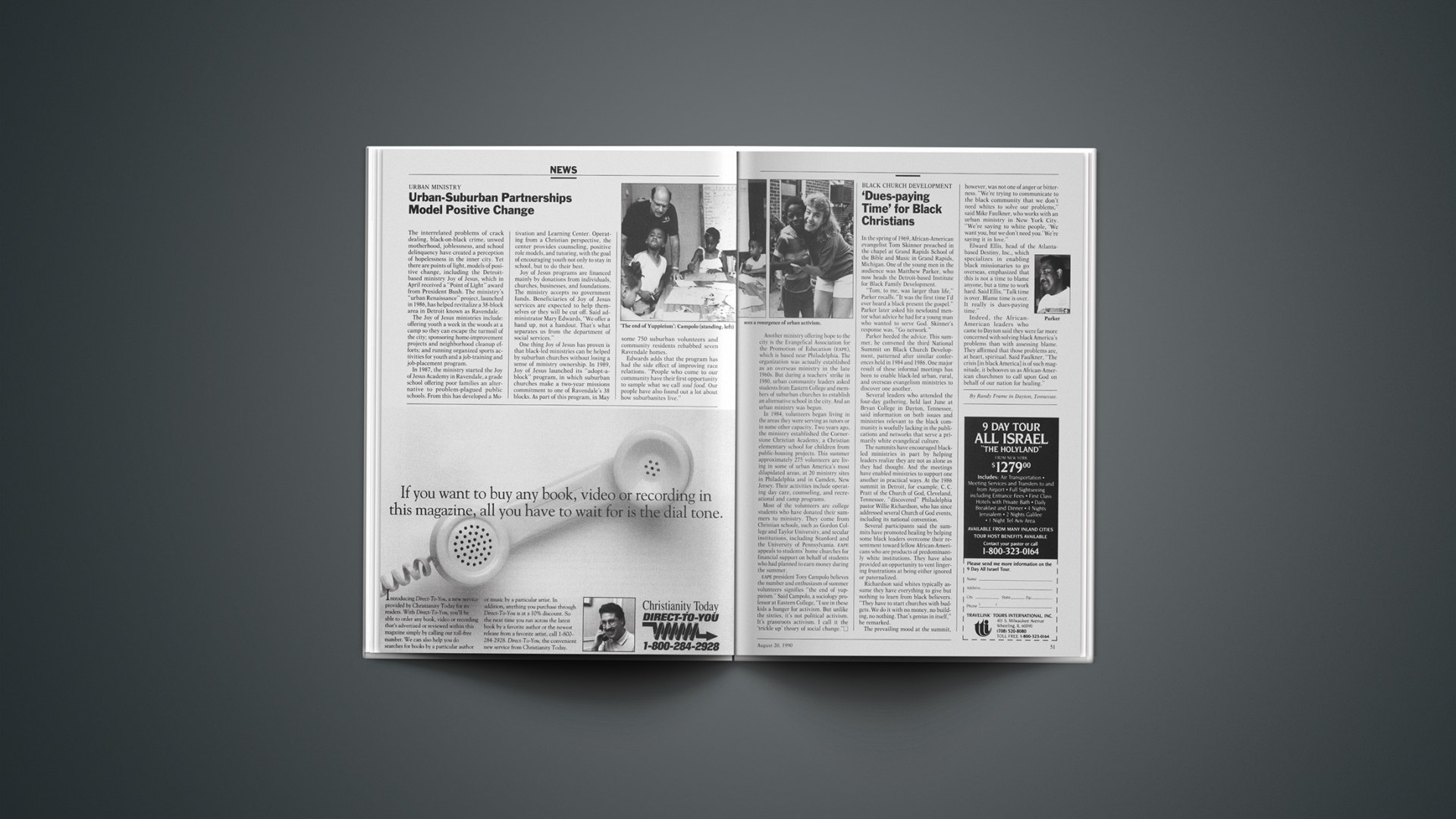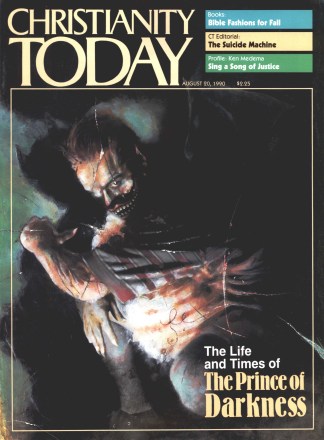The interrelated problems of crack dealing, black-on-black crime, unwed motherhood, joblessness, and school delinquency have created a perception of hopelessness in the inner city. Yet there are points of light, models of positive change, including the Detroit-based ministry Joy of Jesus, which in April received a “Point of Light” award from President Bush. The ministry’s “urban Renaissance” project, launched in 1986, has helped revitalize a 38-block area in Detroit known as Ravendale.
The Joy of Jesus ministries include: offering youth a week in the woods at a camp so they can escape the turmoil of the city; sponsoring home-improvement projects and neighborhood cleanup efforts; and running organized sports activities for youth and a job-training and job-placement program.
In 1987, the ministry started the Joy of Jesus Academy in Ravendale, a grade school offering poor families an alternative to problem-plagued public schools. From this has developed a Motivation and Learning Center. Operating from a Christian perspective, the center provides counseling, positive role models, and tutoring, with the goal of encouraging youth not only to stay in school, but to do their best.
Joy of Jesus programs are financed mainly by donations from individuals, churches, businesses, and foundations. The ministry accepts no government funds. Beneficiaries of Joy of Jesus services are expected to help themselves or they will be cut off. Said administrator Mary Edwards, “We offer a hand up, not a handout. That’s what separates us from the department of social services.”
One thing Joy of Jesus has proven is that black-led ministries can be helped by suburban churches without losing a sense of ministry ownership. In 1989, Joy of Jesus launched its “adopt-a-block” program, in which suburban churches make a two-year missions commitment to one of Ravendale’s 38 blocks. As part of this program, in May some 750 suburban volunteers and community residents rehabbed seven Ravendale homes.
Edwards adds that the program has had the side effect of improving race relations. “People who come to our community have their first opportunity to sample what we call soul food. Our people have also found out a lot about how suburbanites live.”
Another ministry offering hope to the city is the Evangelical Association for the Promotion of Education (EAPE), which is based near Philadelphia. The organization was actually established as an overseas ministry in the late 1960s. But during a teachers’ strike in 1980, urban community leaders asked students from Eastern College and members of suburban churches to establish an alternative school in the city. And an urban ministry was begun.
In 1984, volunteers began living in the areas they were serving as tutors or in some other capacity. Two years ago, the ministry established the Cornerstone Christian Academy, a Christian elementary school for children from public-housing projects. This summer approximately 275 volunteers are living in some of urban America’s most dilapidated areas, at 20 ministry sites in Philadelphia and in Camden, New Jersey. Their activities include operating day care, counseling, and recreational and camp programs.
Most of the volunteers are college students who have donated their summers to ministry. They come from Christian schools, such as Gordon College and Taylor University, and secular institutions, including Stanford and the University of Pennsylvania. EAPE appeals to students’ home churches for financial support on behalf of students who had planned to earn money during the summer.
EAPE president Tony Campolo believes the number and enthusiasm of summer volunteers signifies “the end of yuppieism.” Said Campolo, a sociology professor at Eastern College, “I see in these kids a hunger for activism. But unlike the sixties, it’s not political activism. It’s grassroots activism. I call it the ‘trickle up’ theory of social change.”










